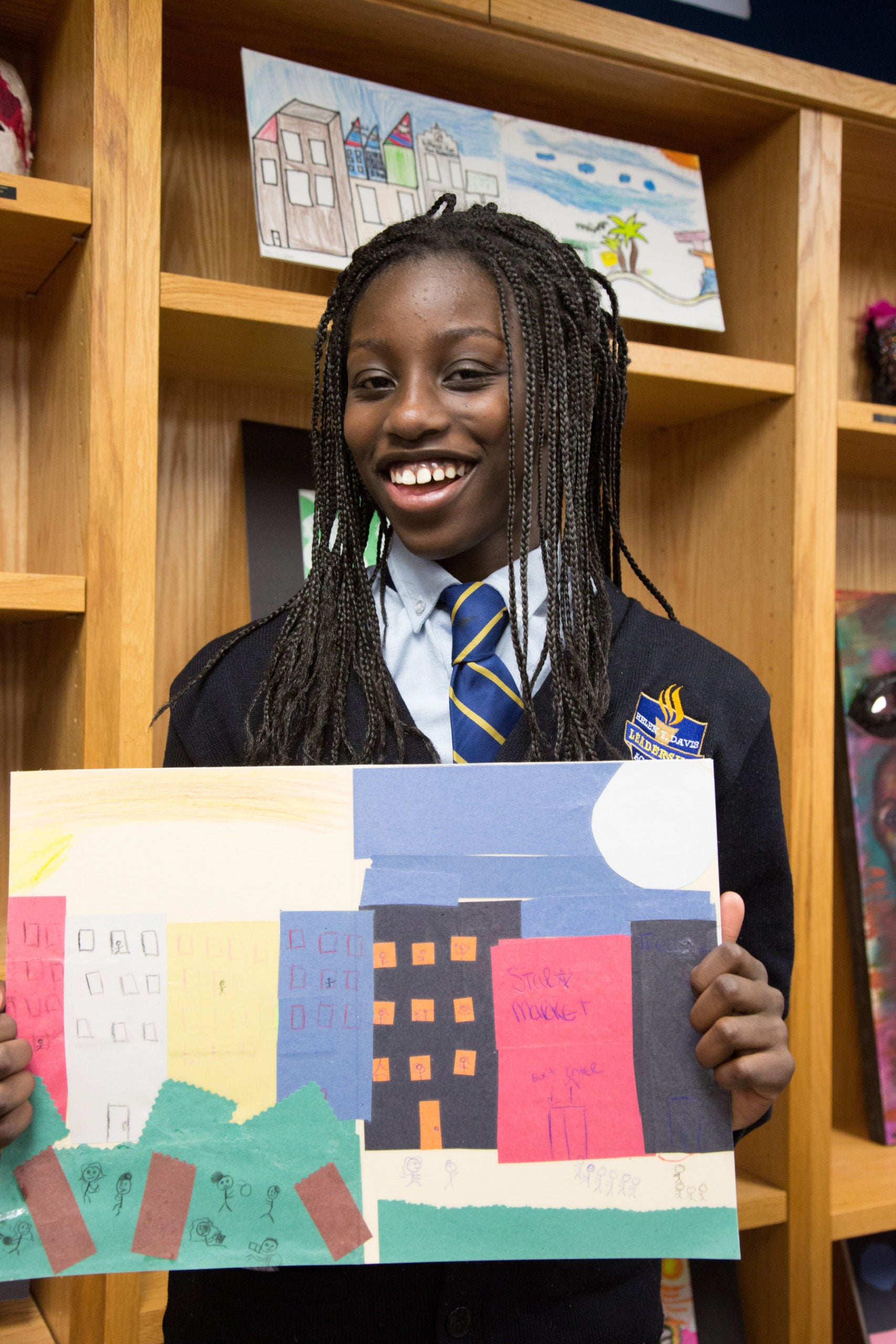
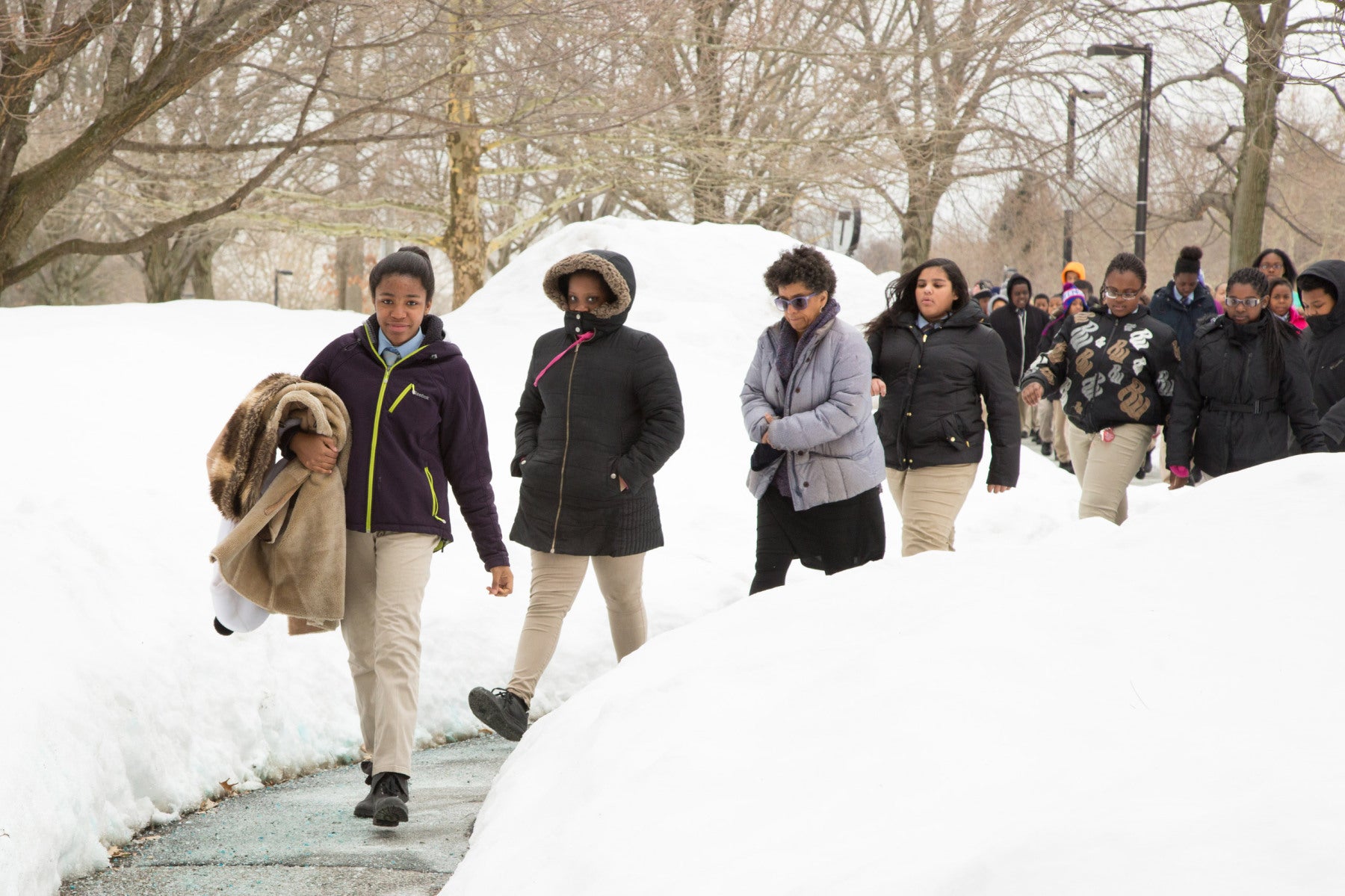
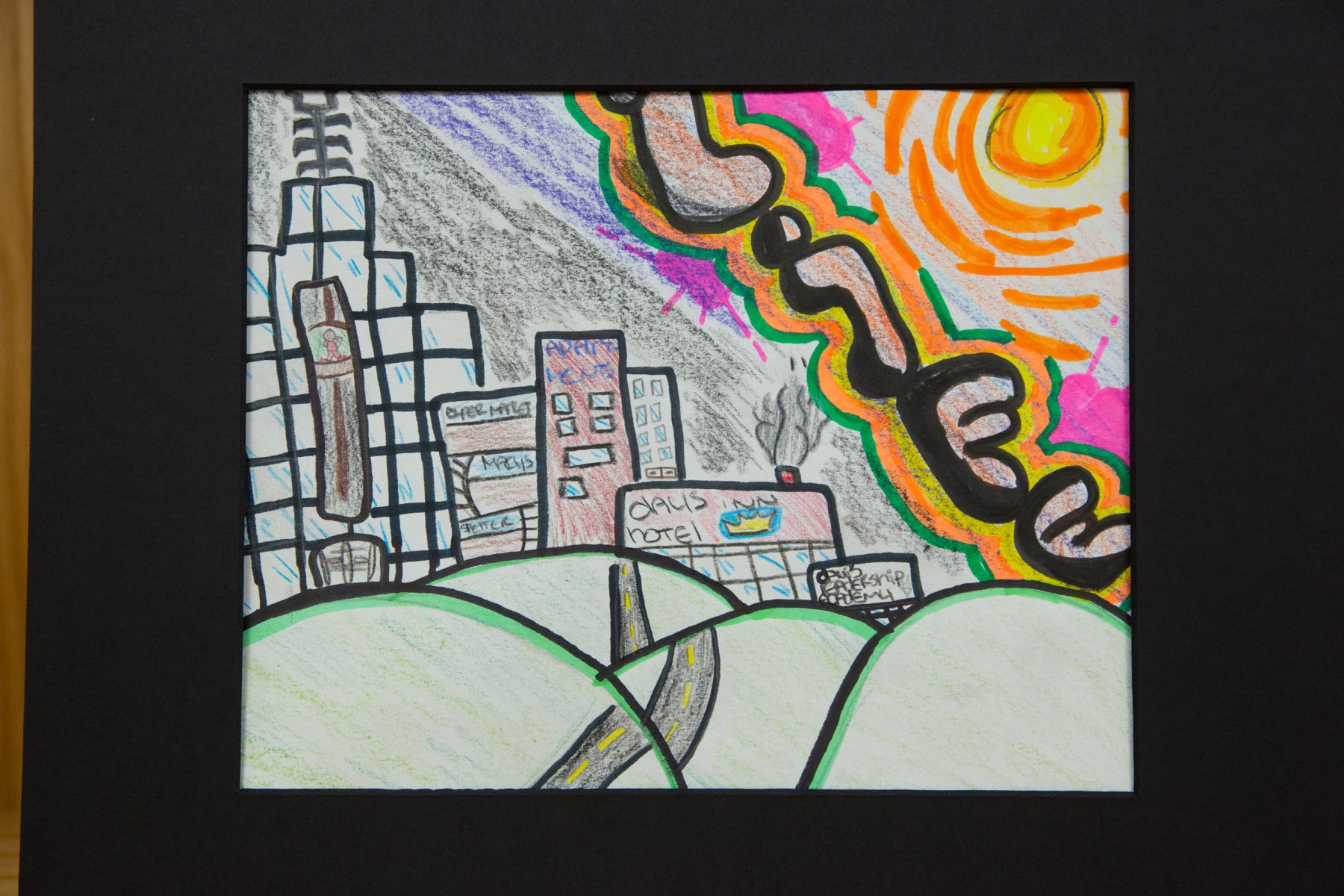
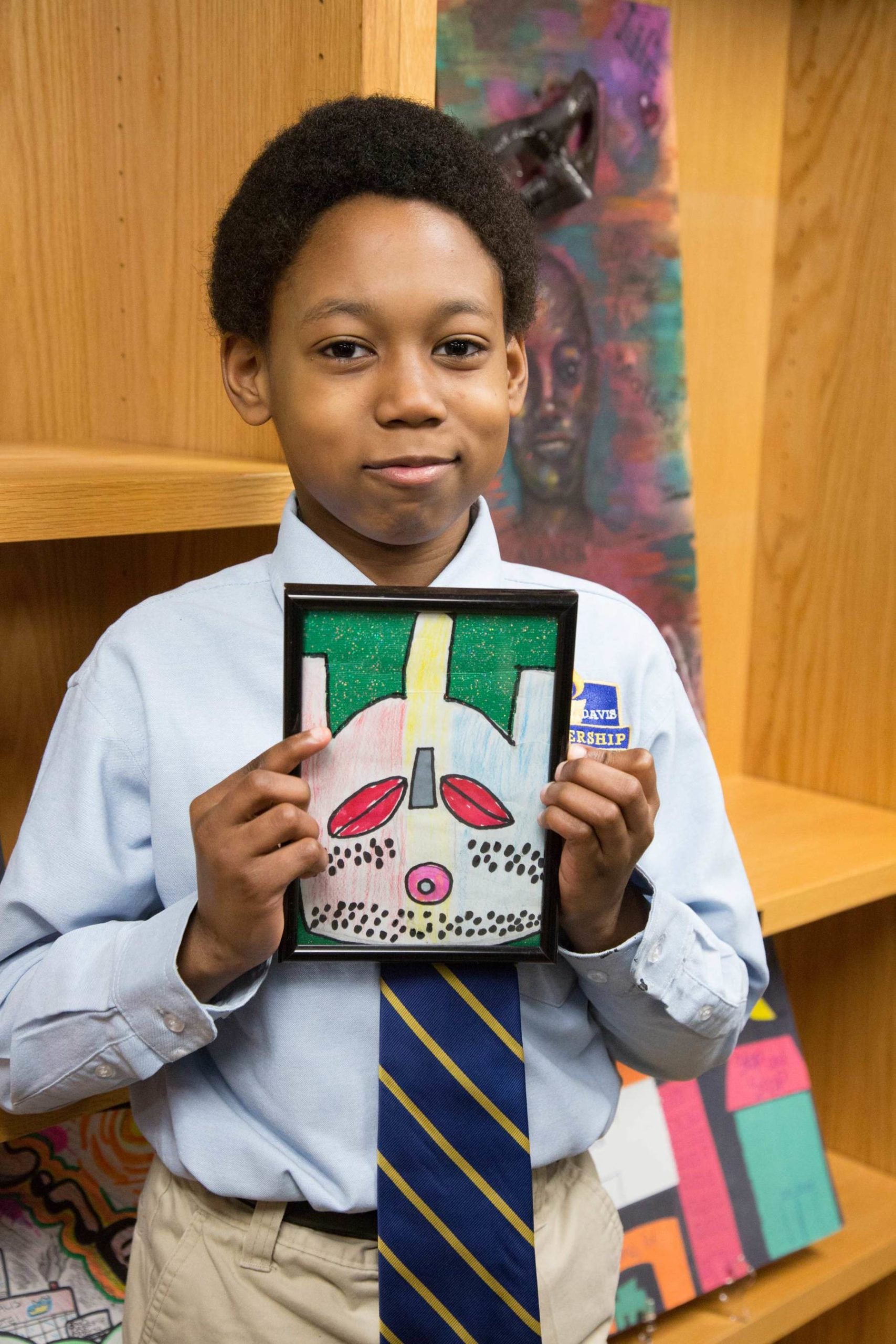
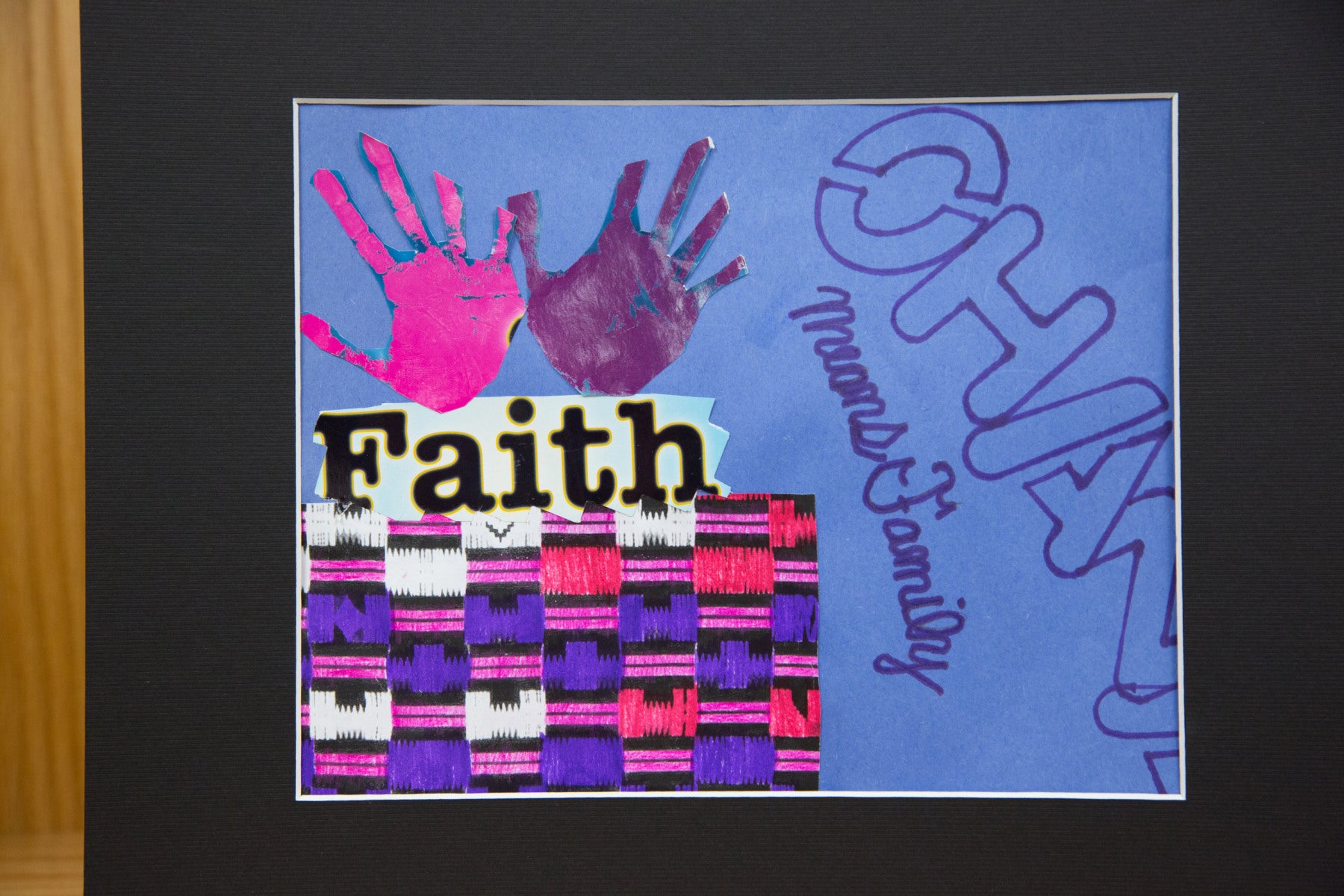
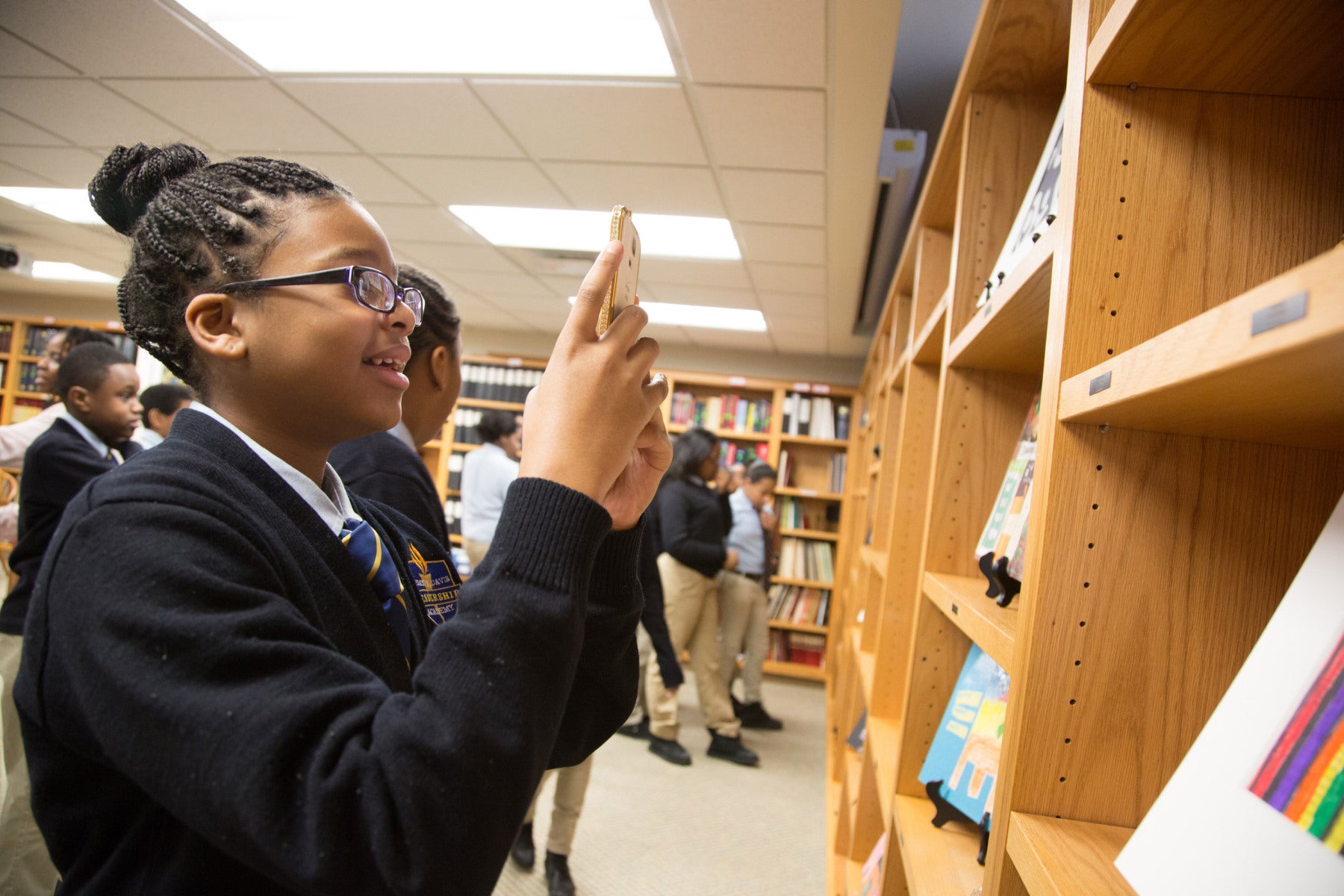
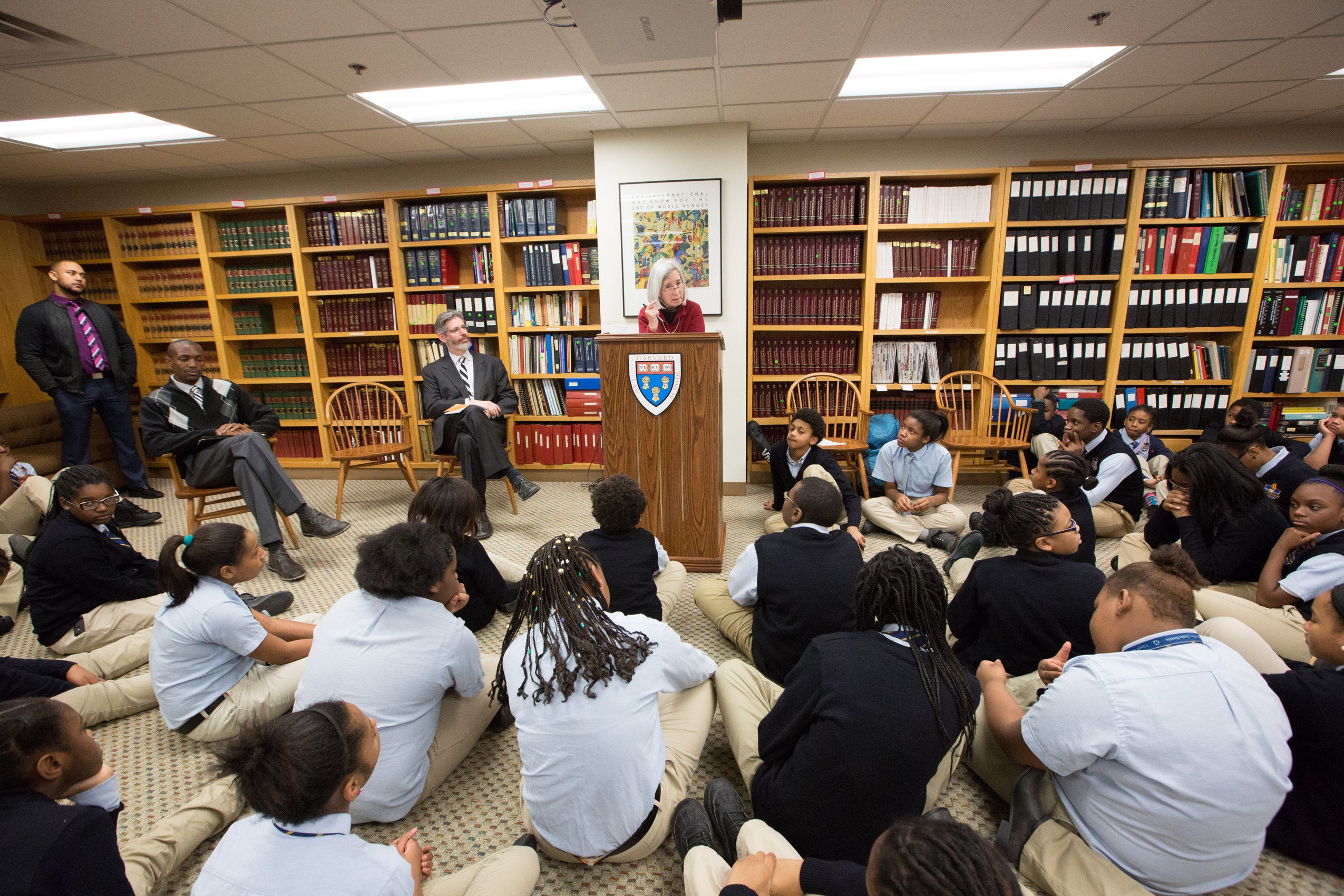
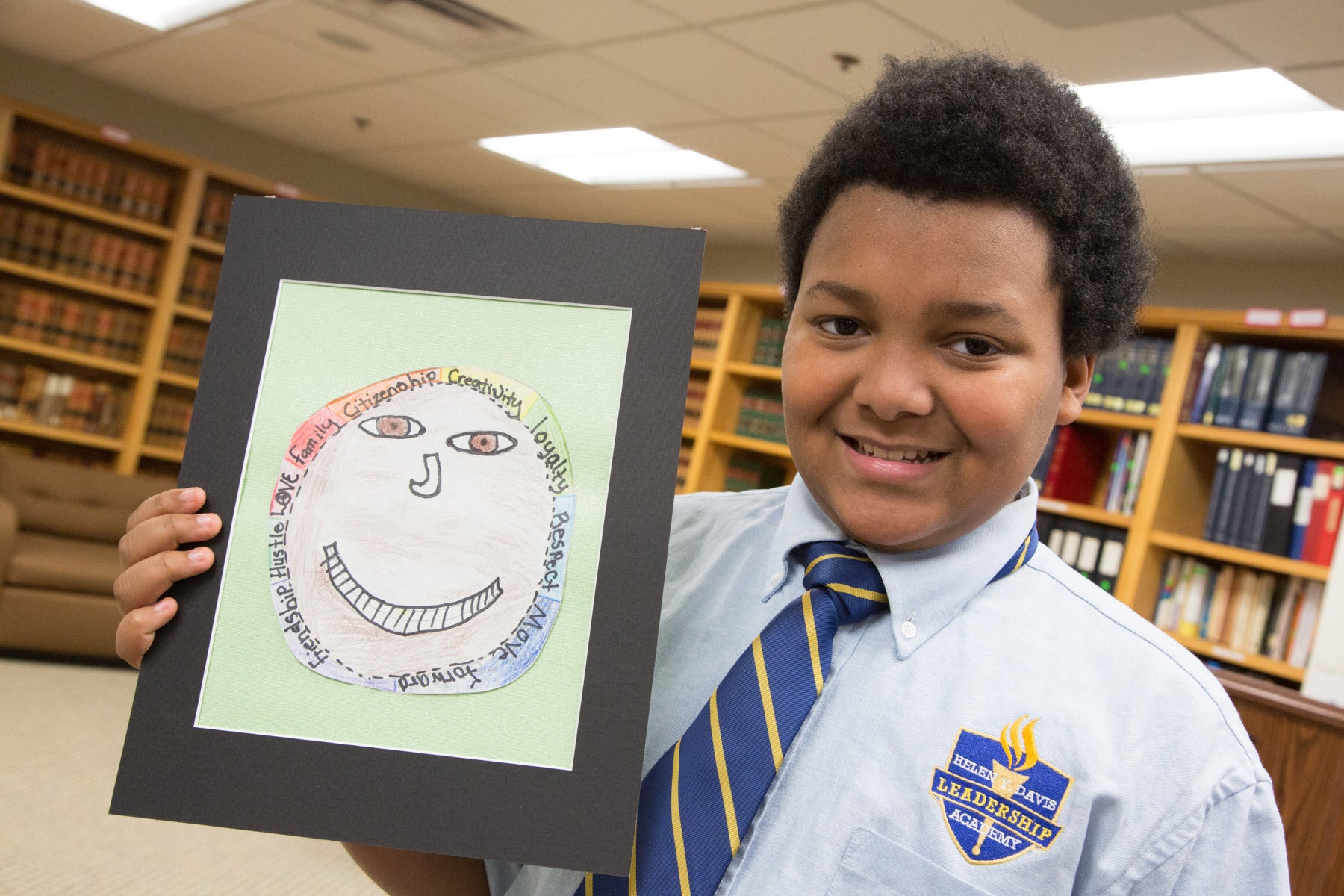
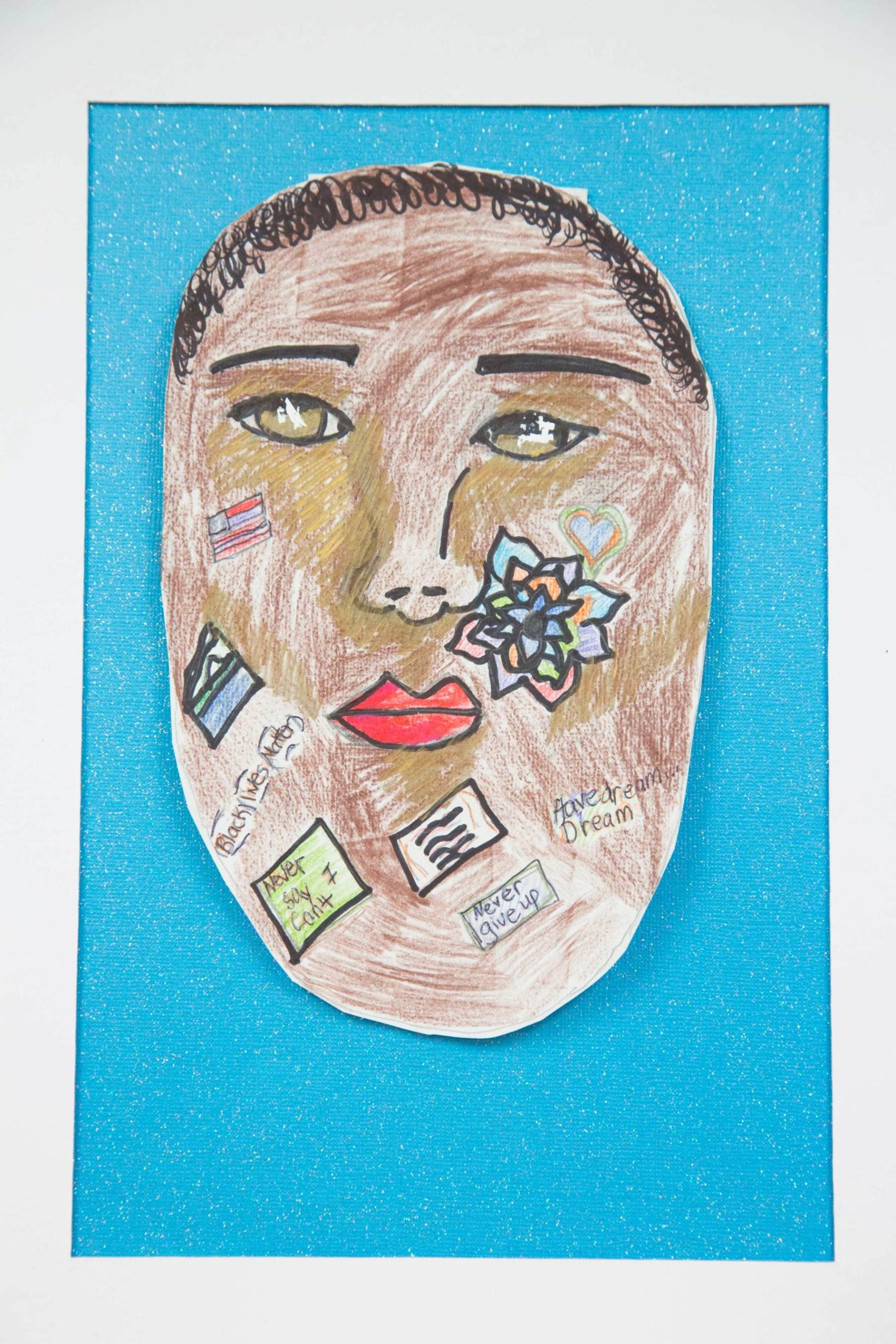
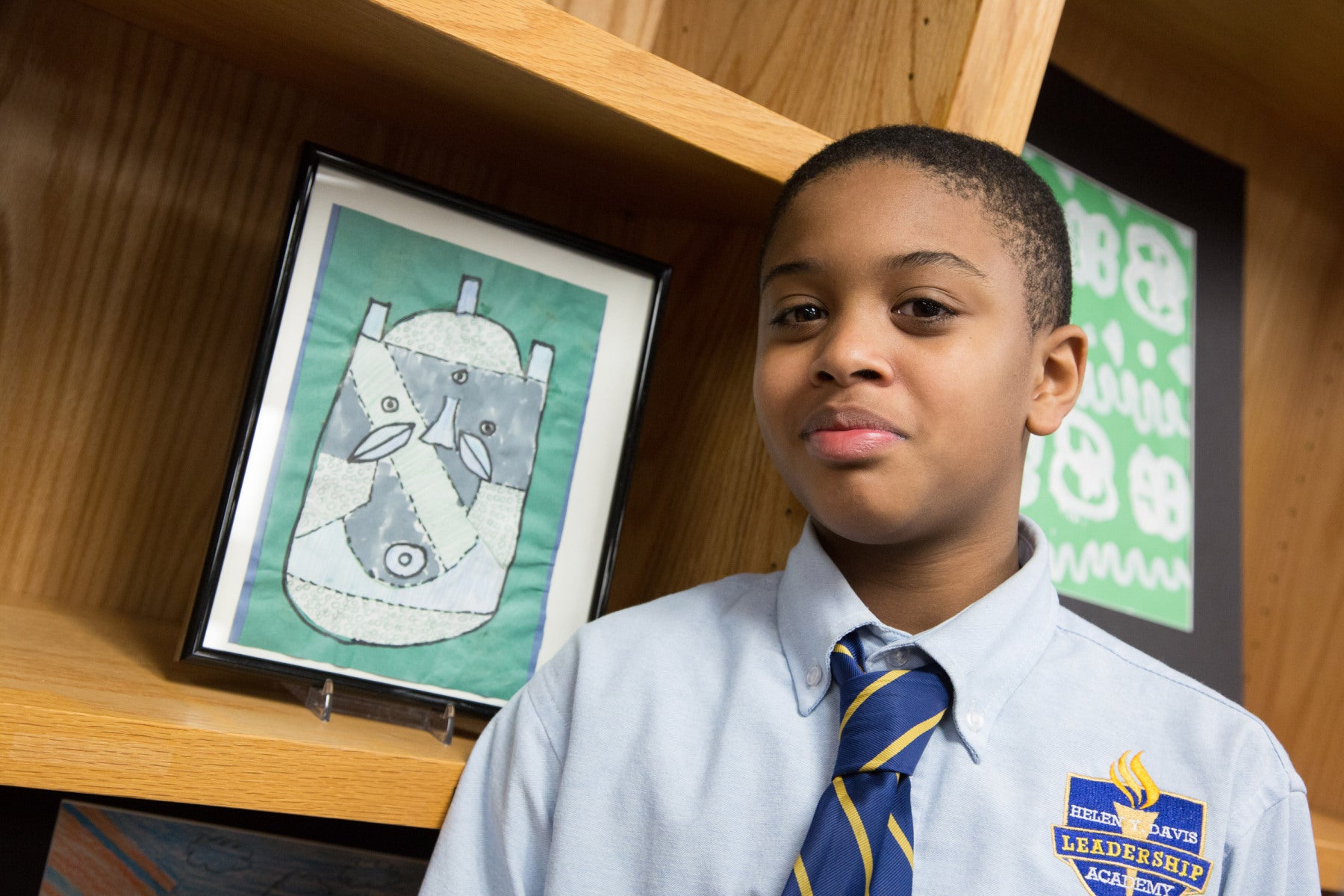
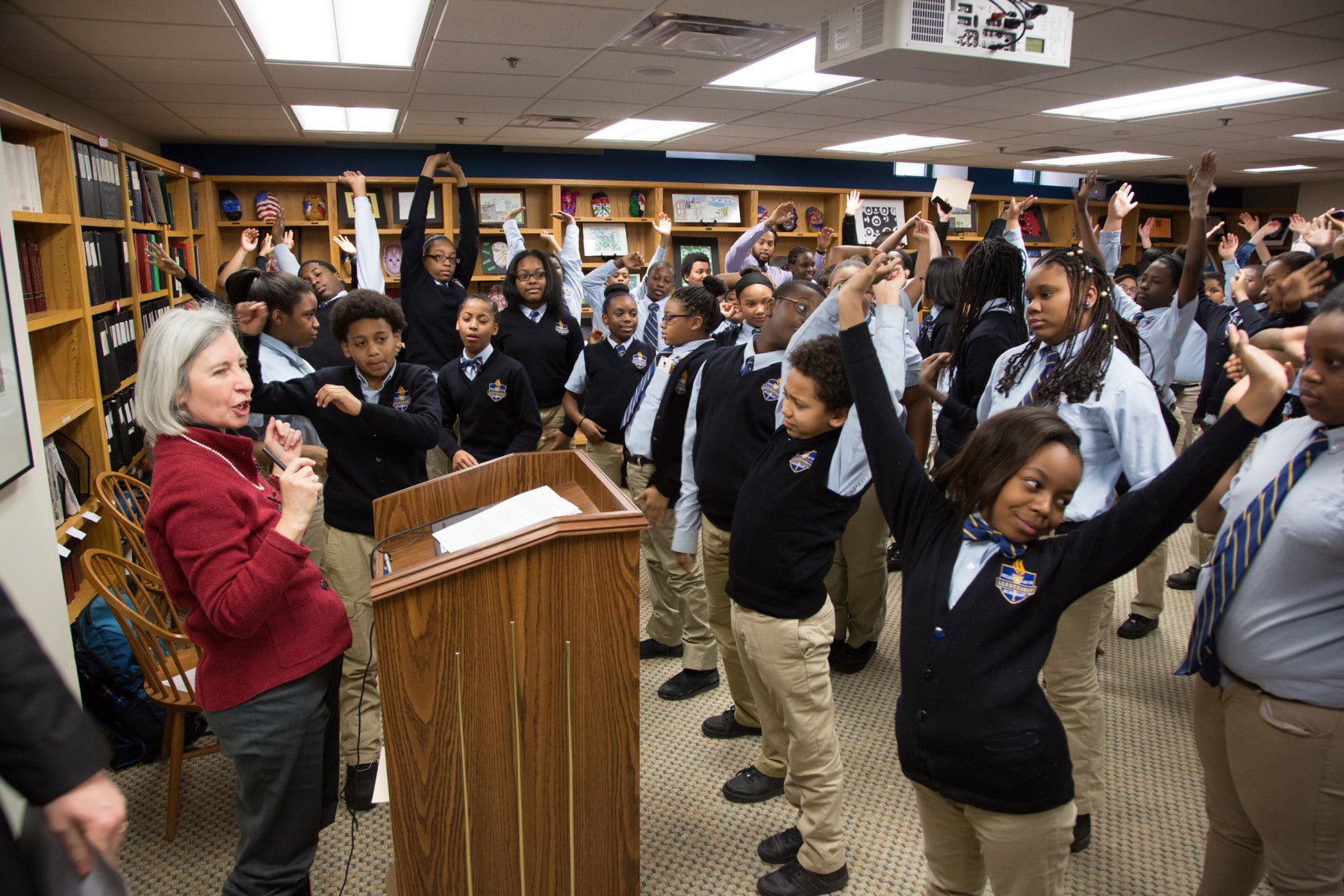
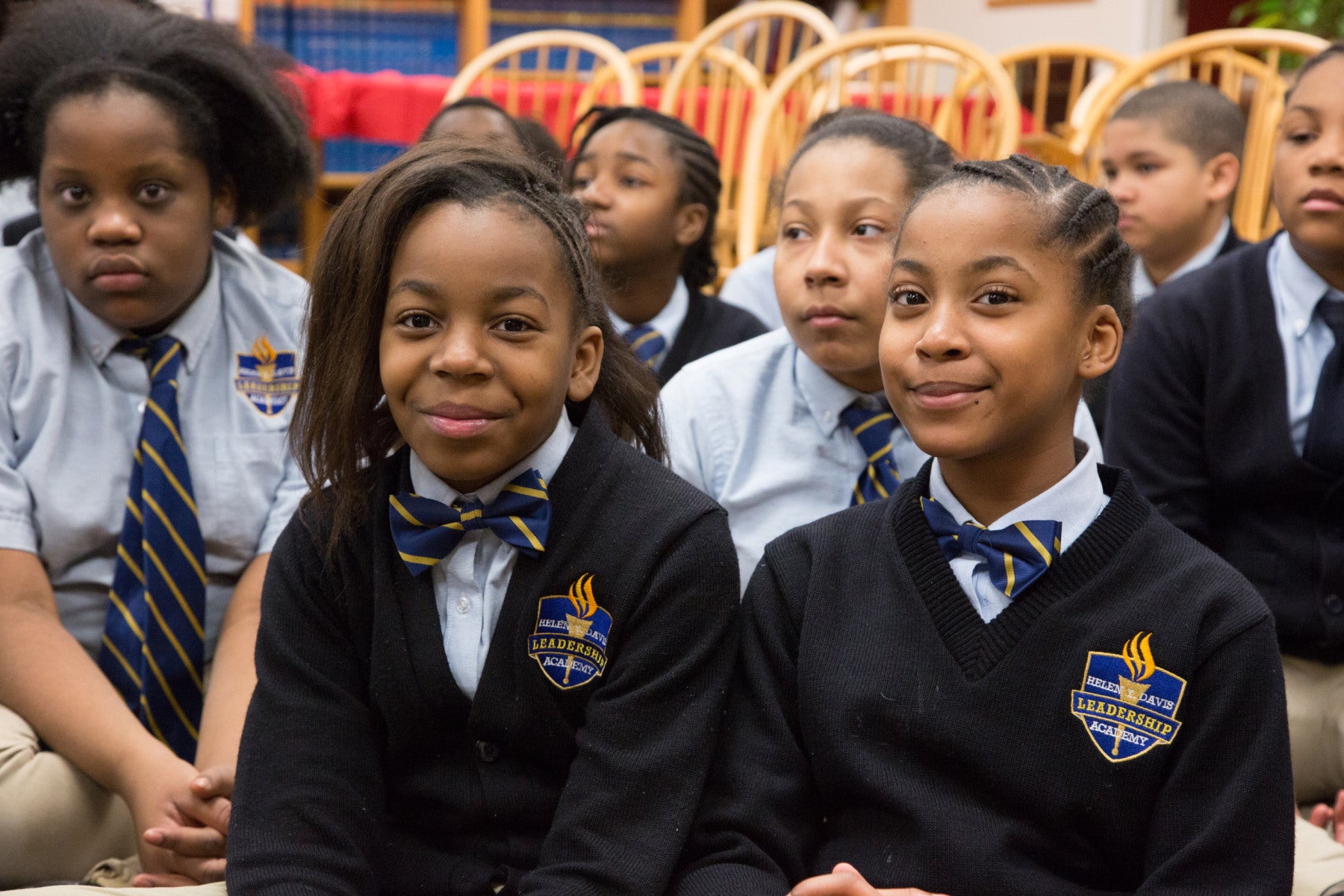
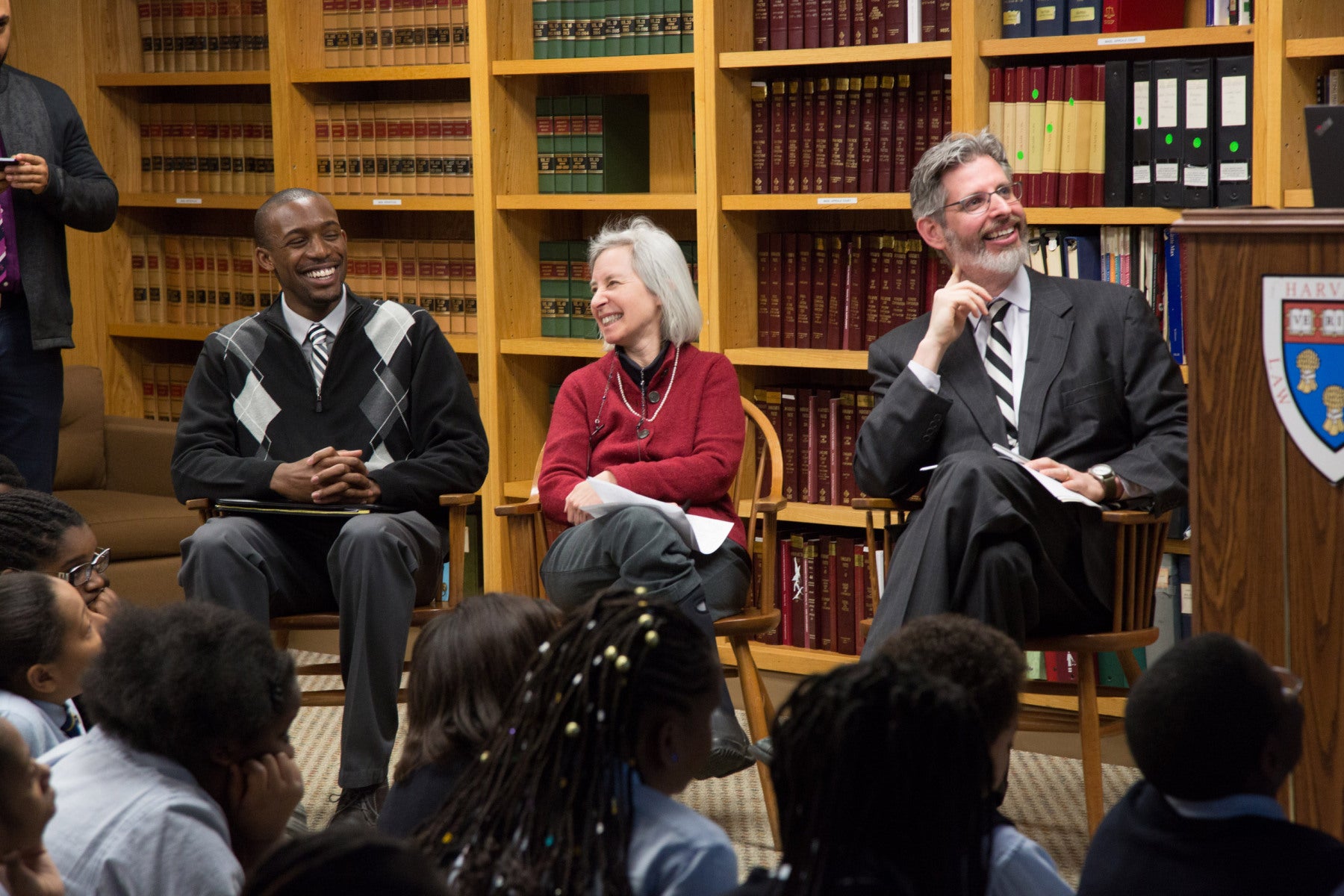
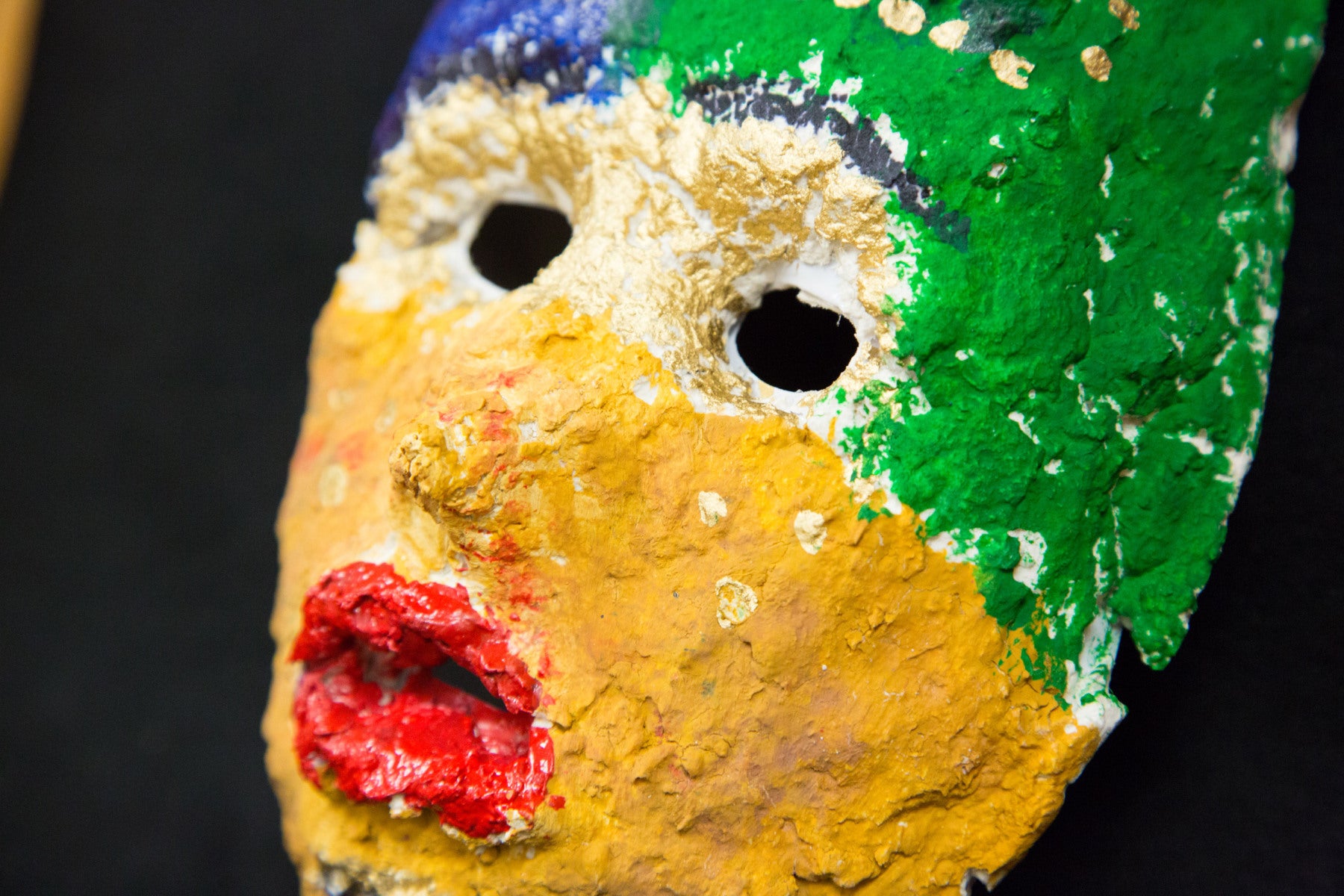
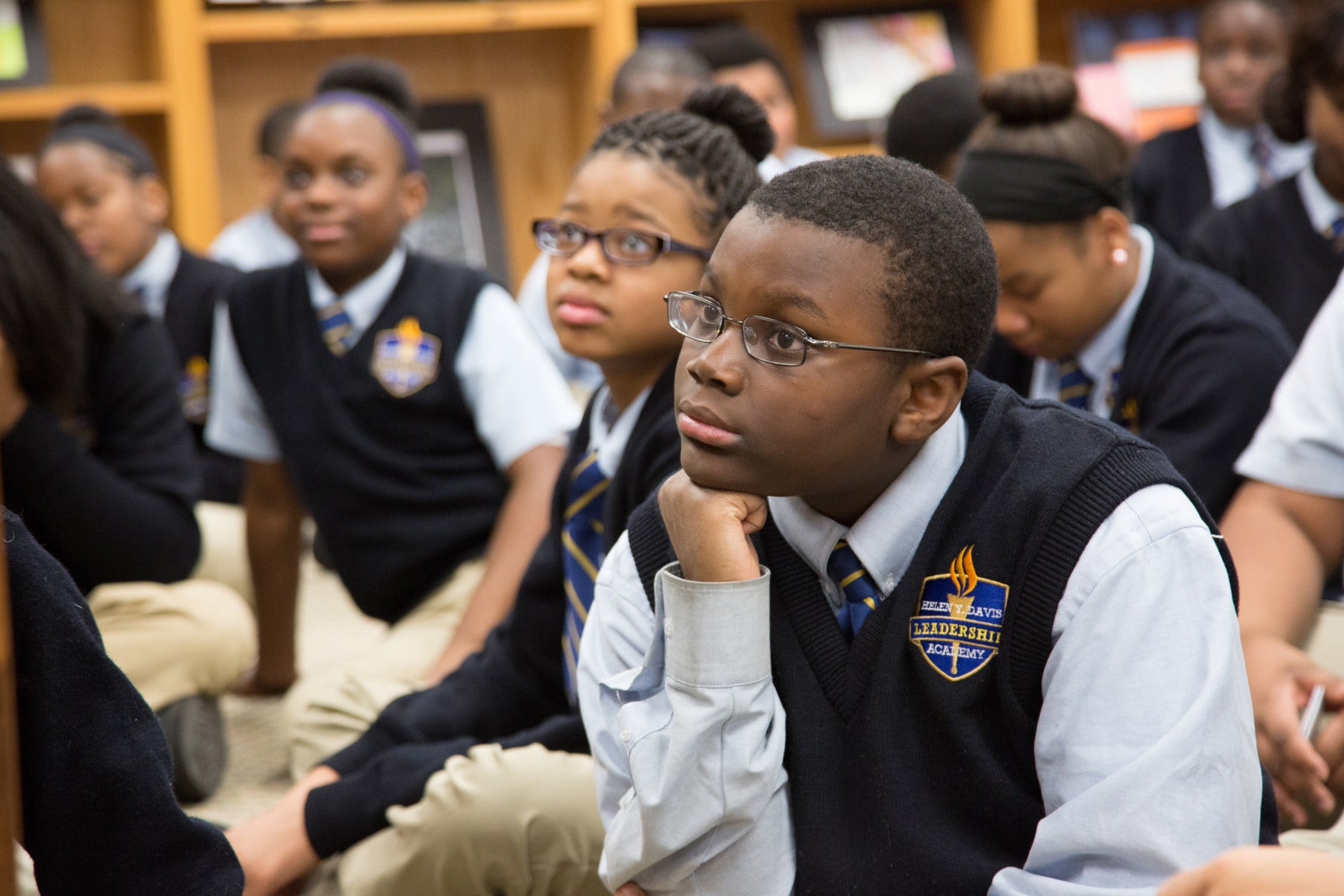
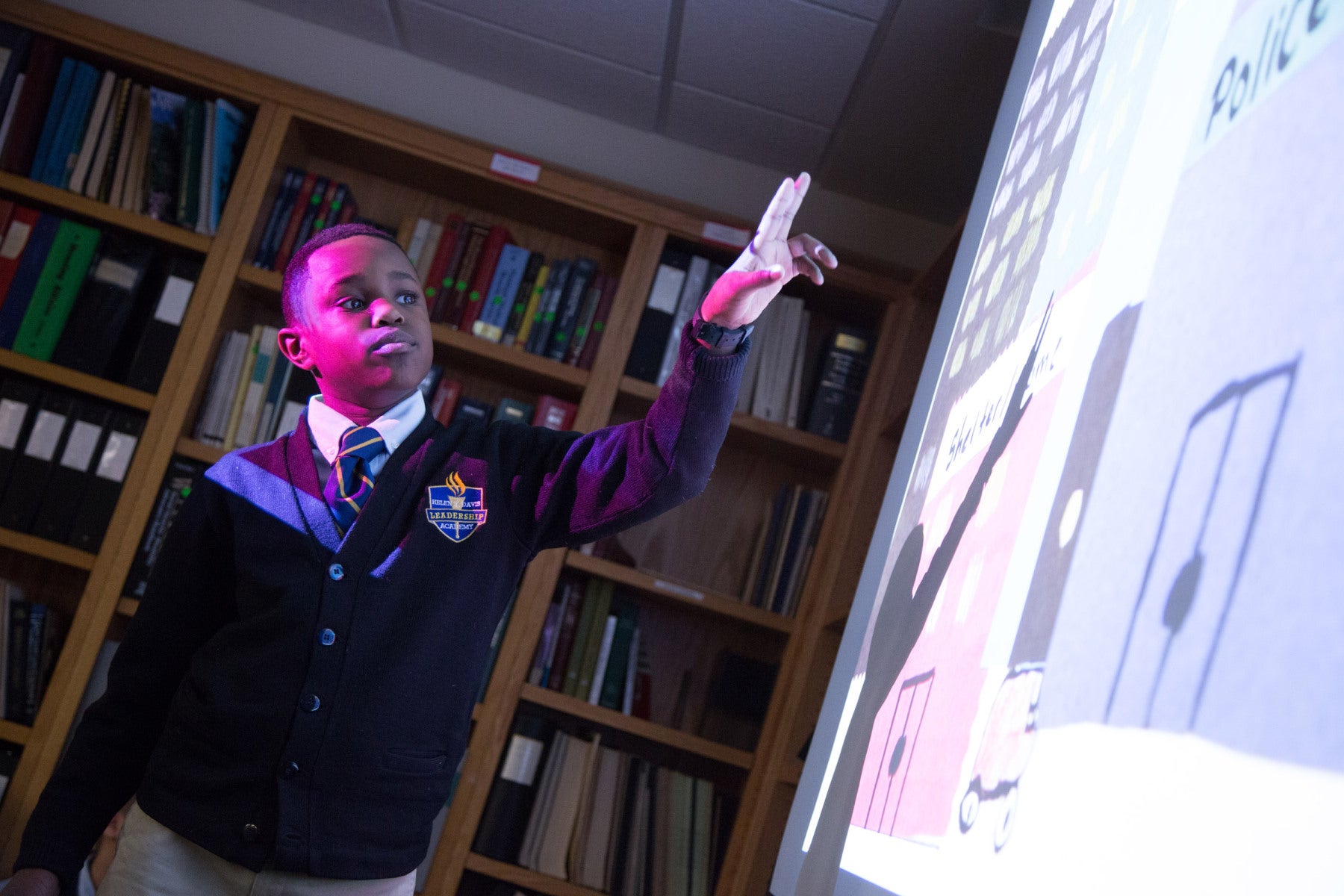
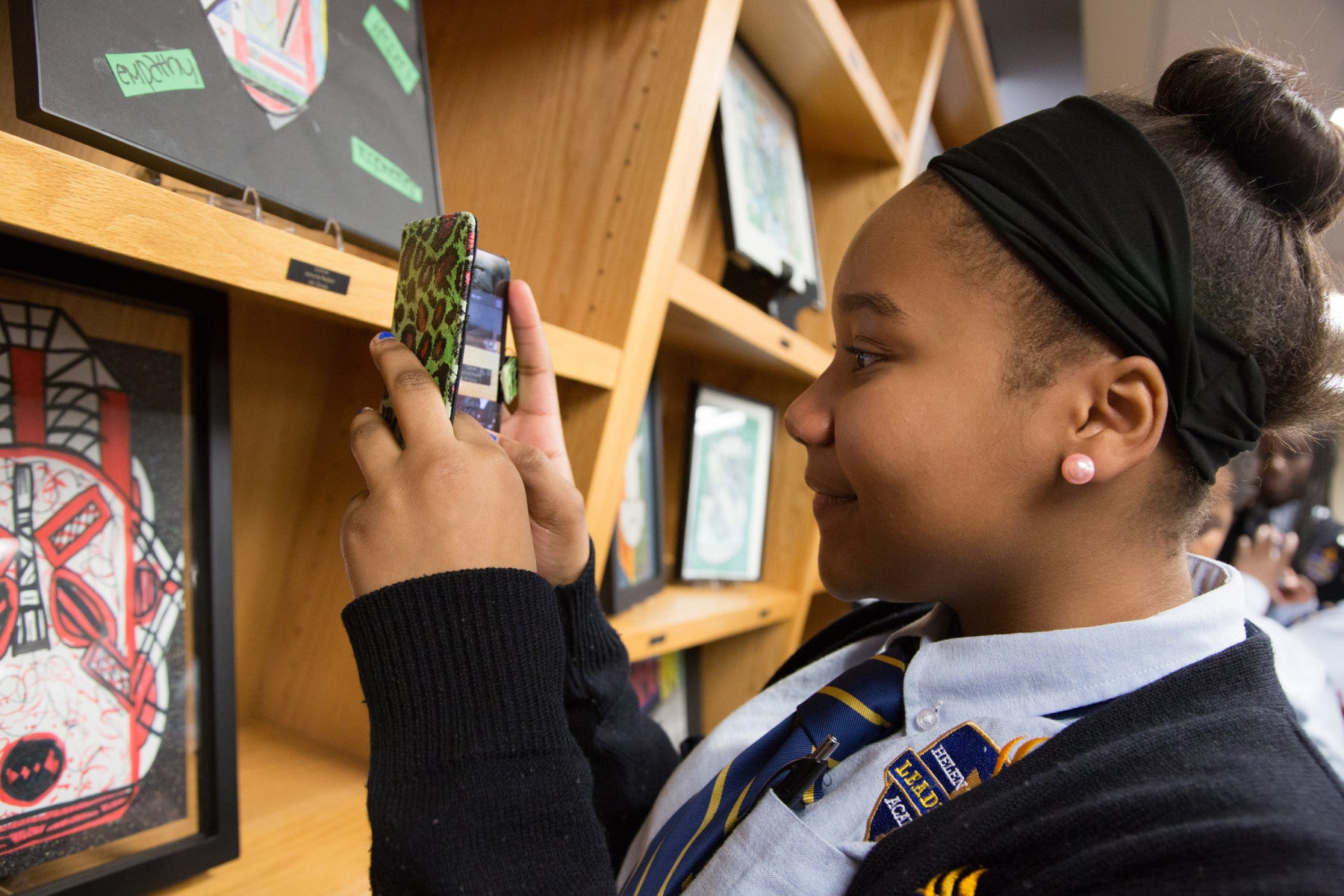
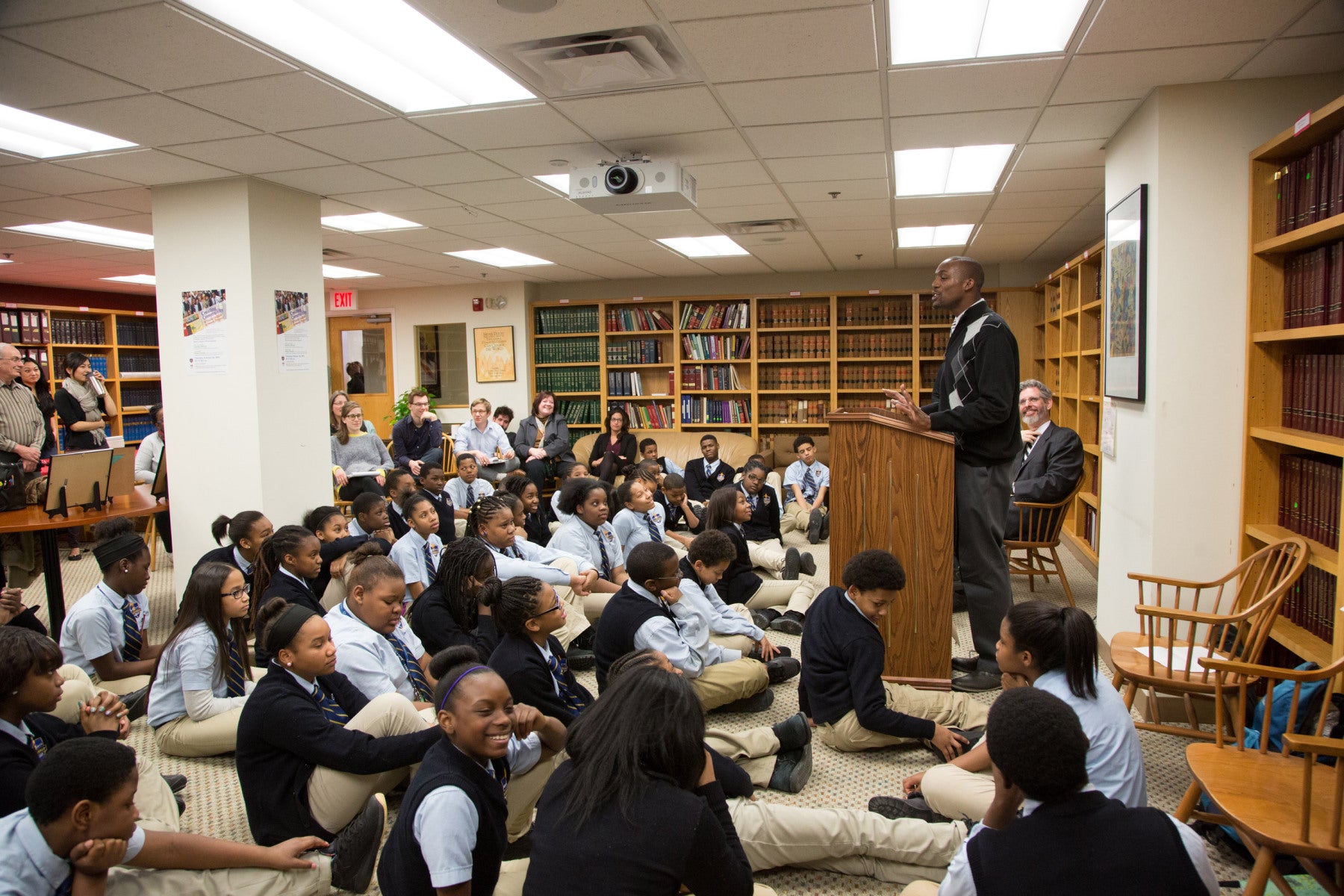
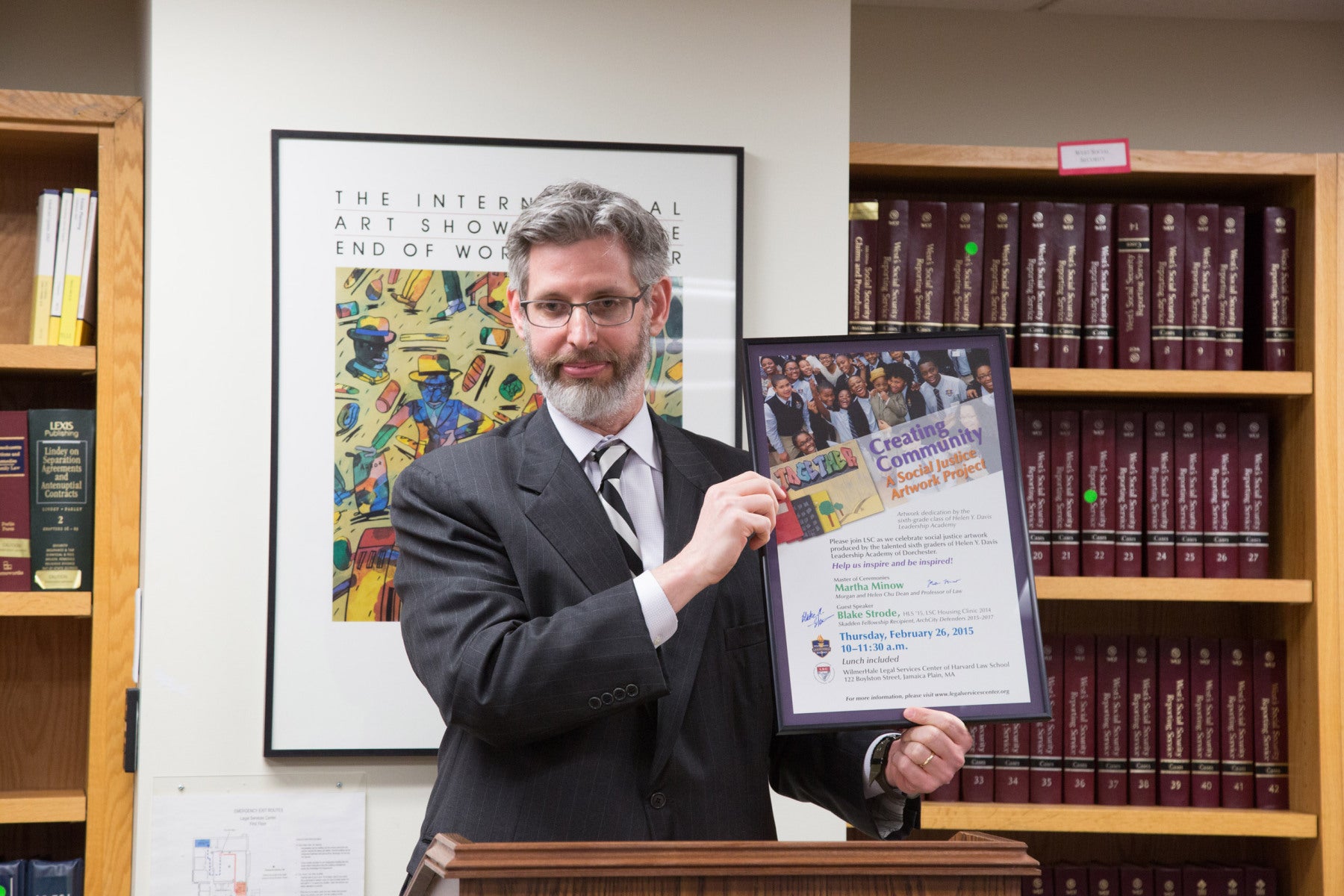
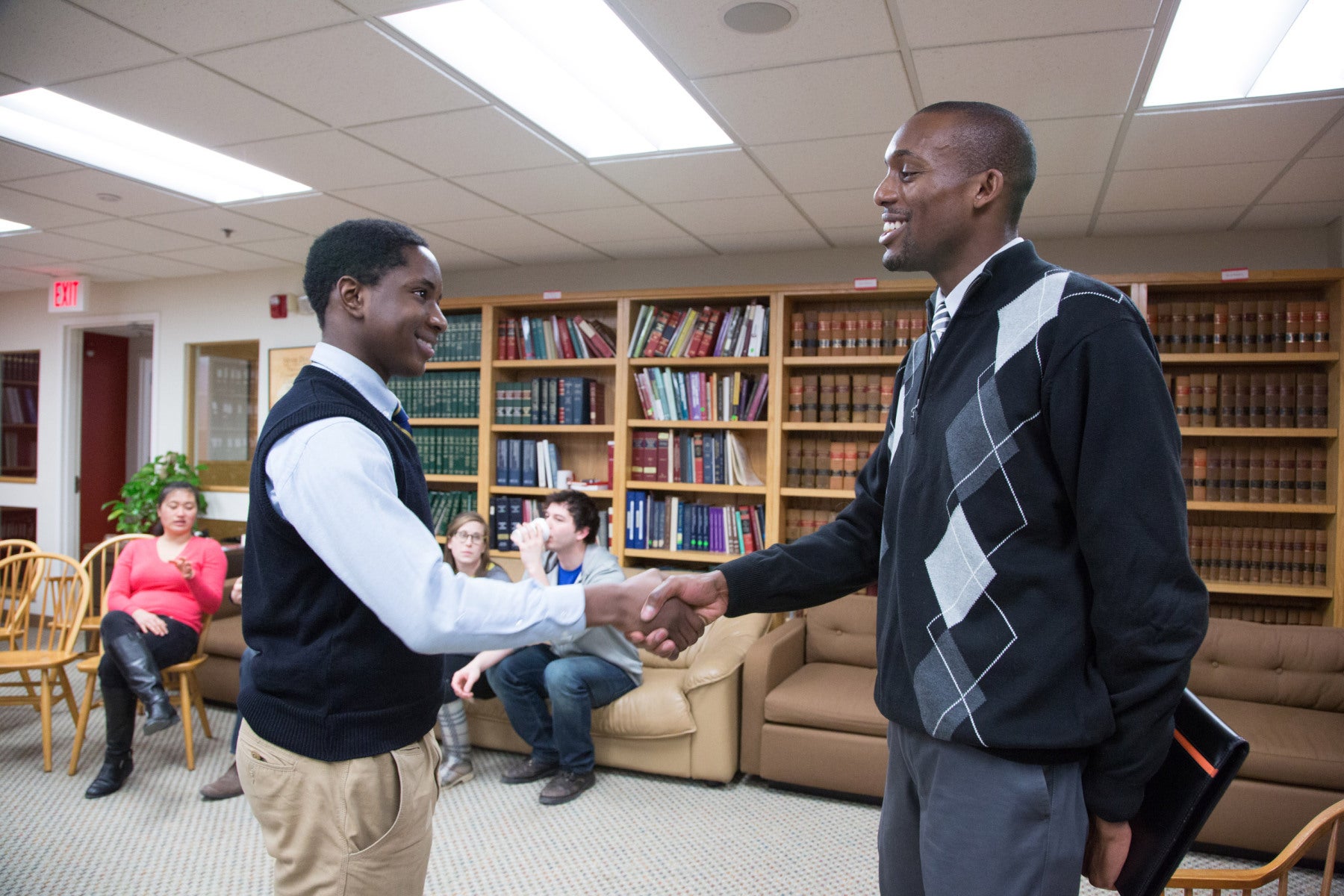
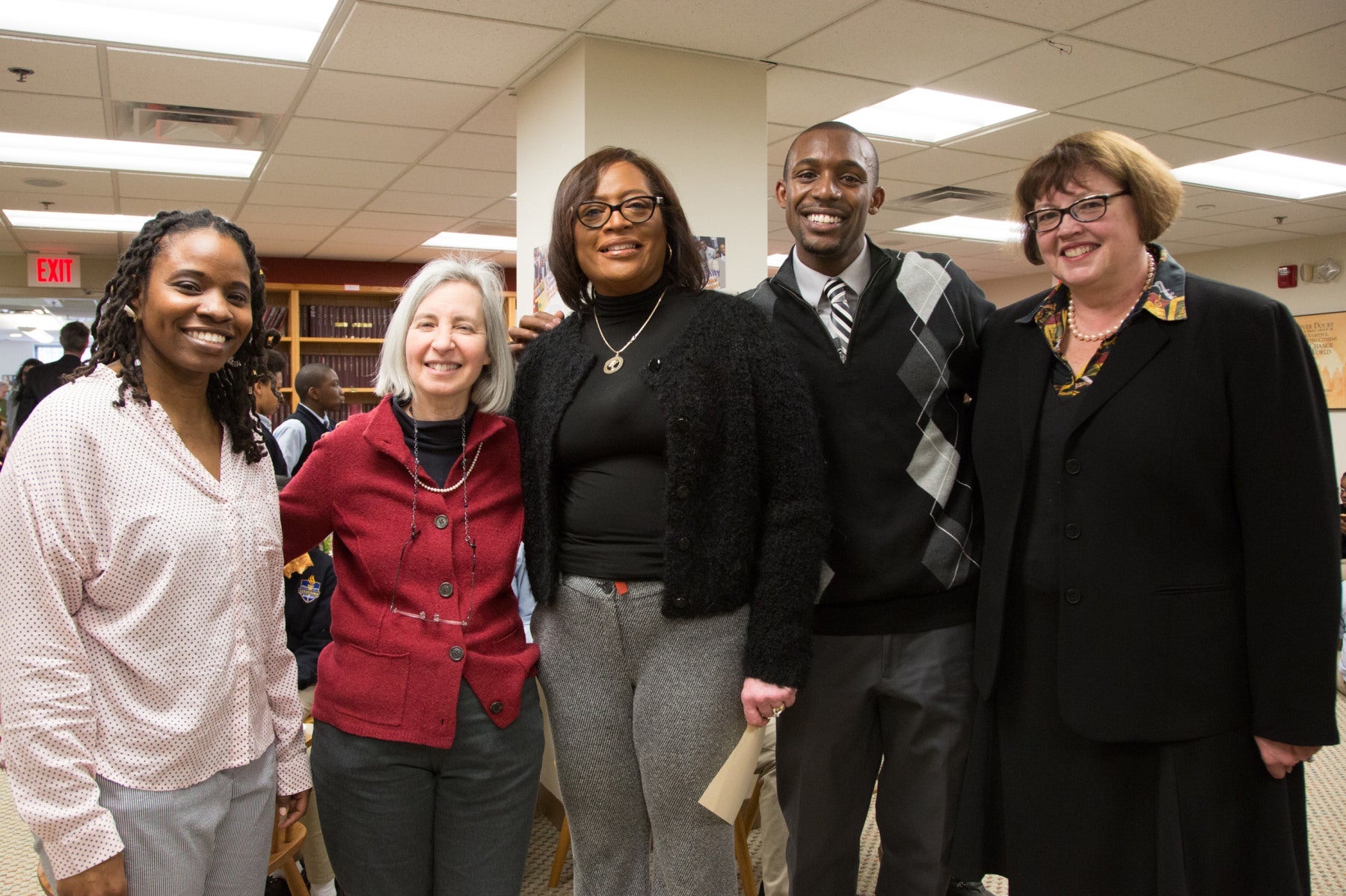
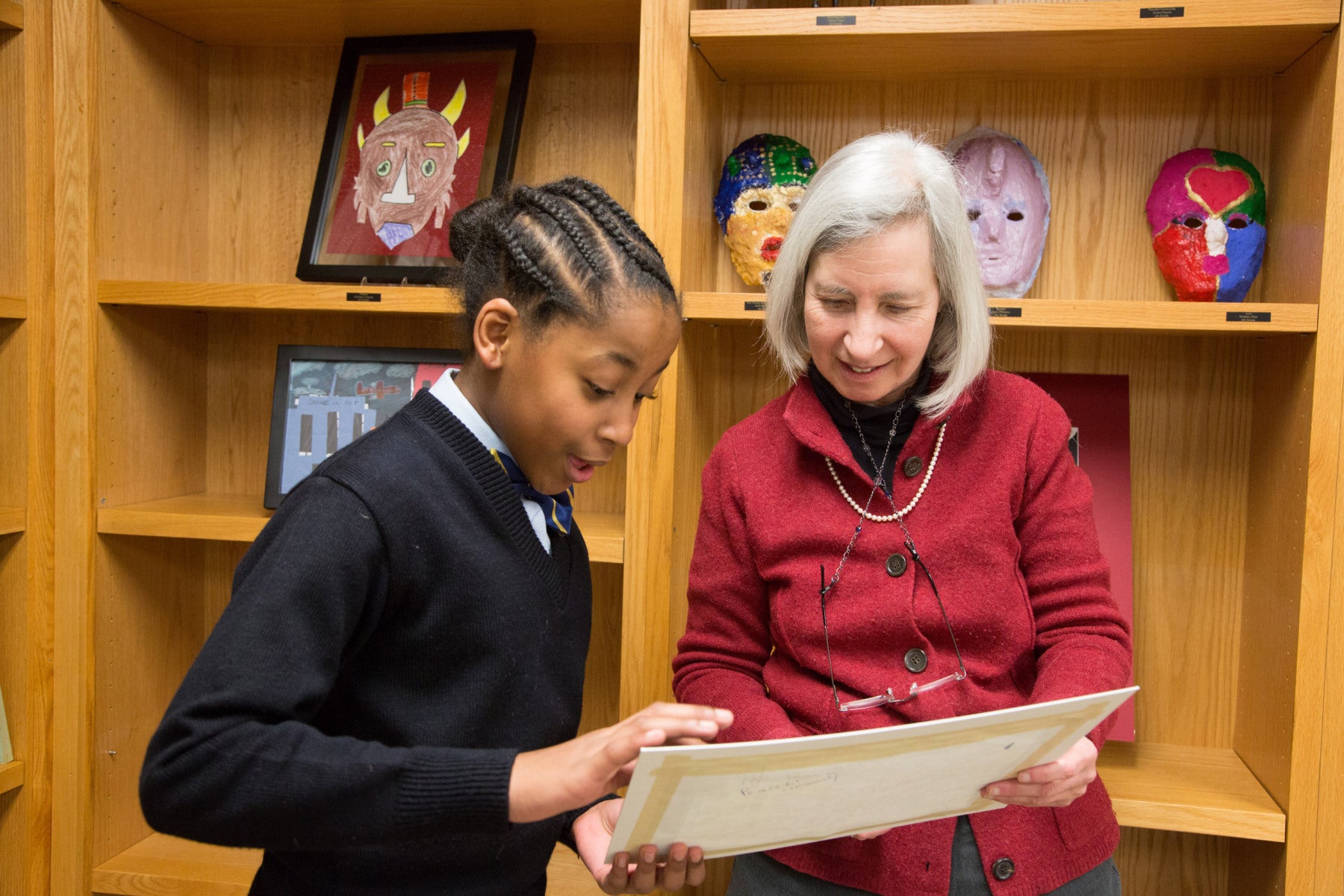
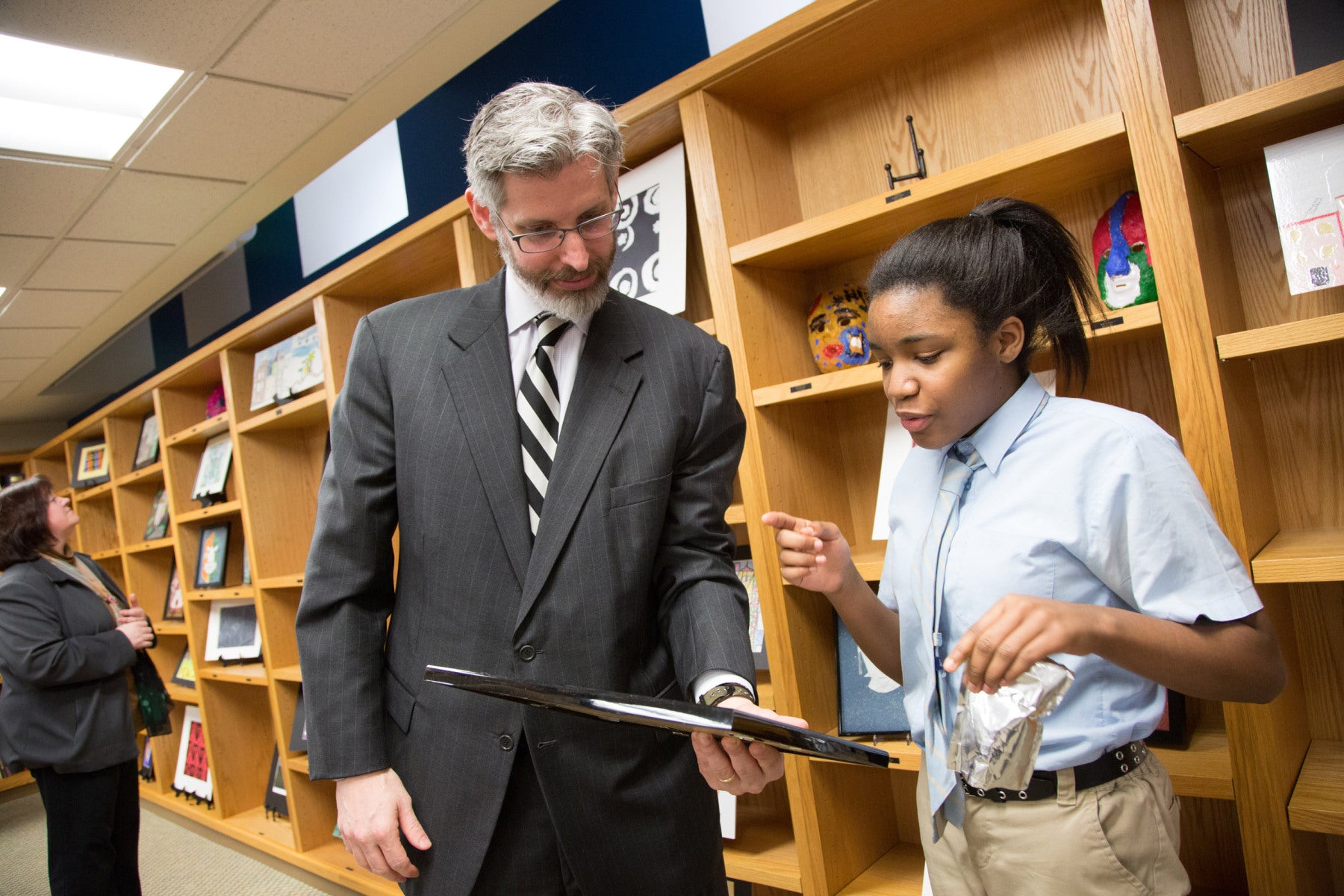
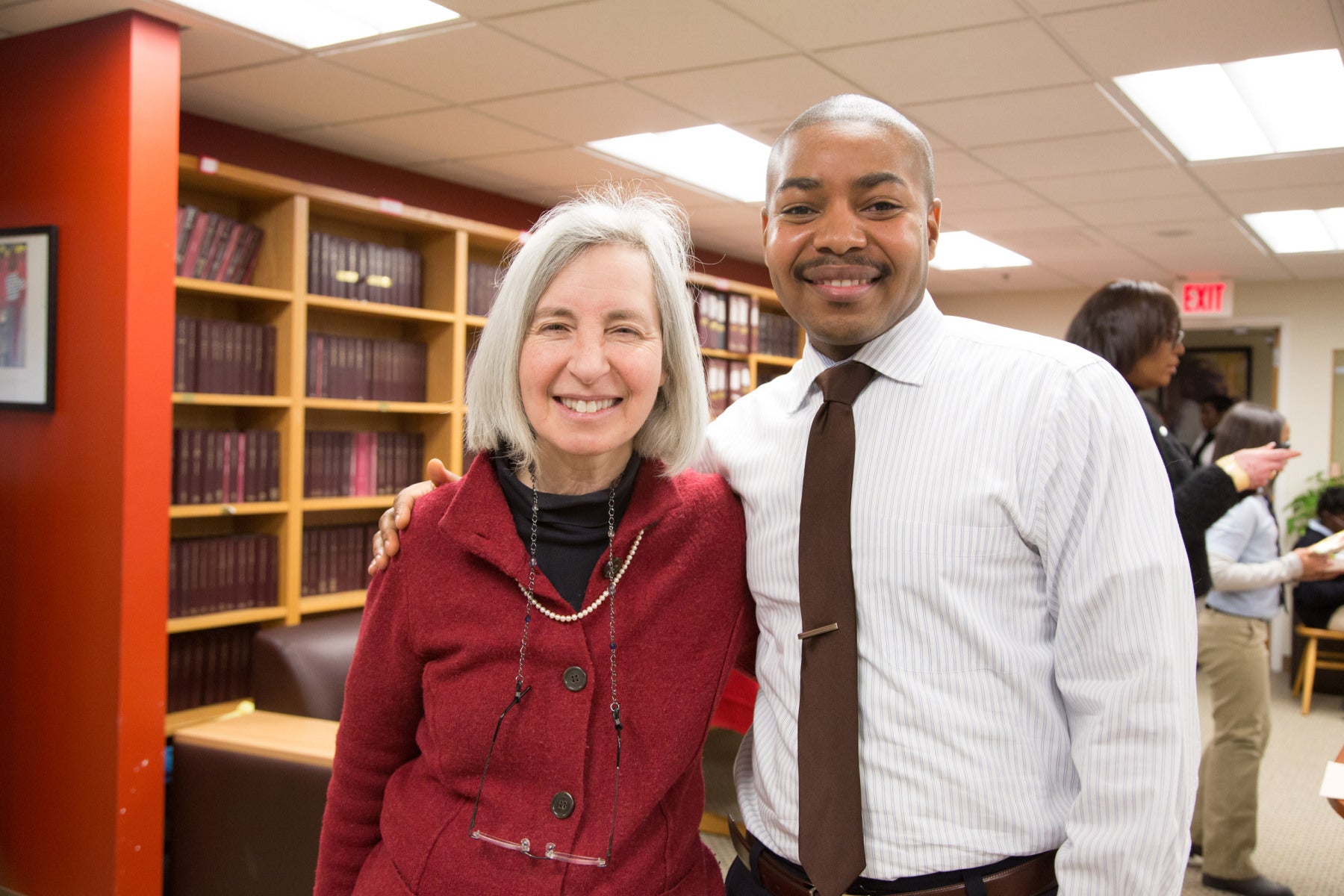
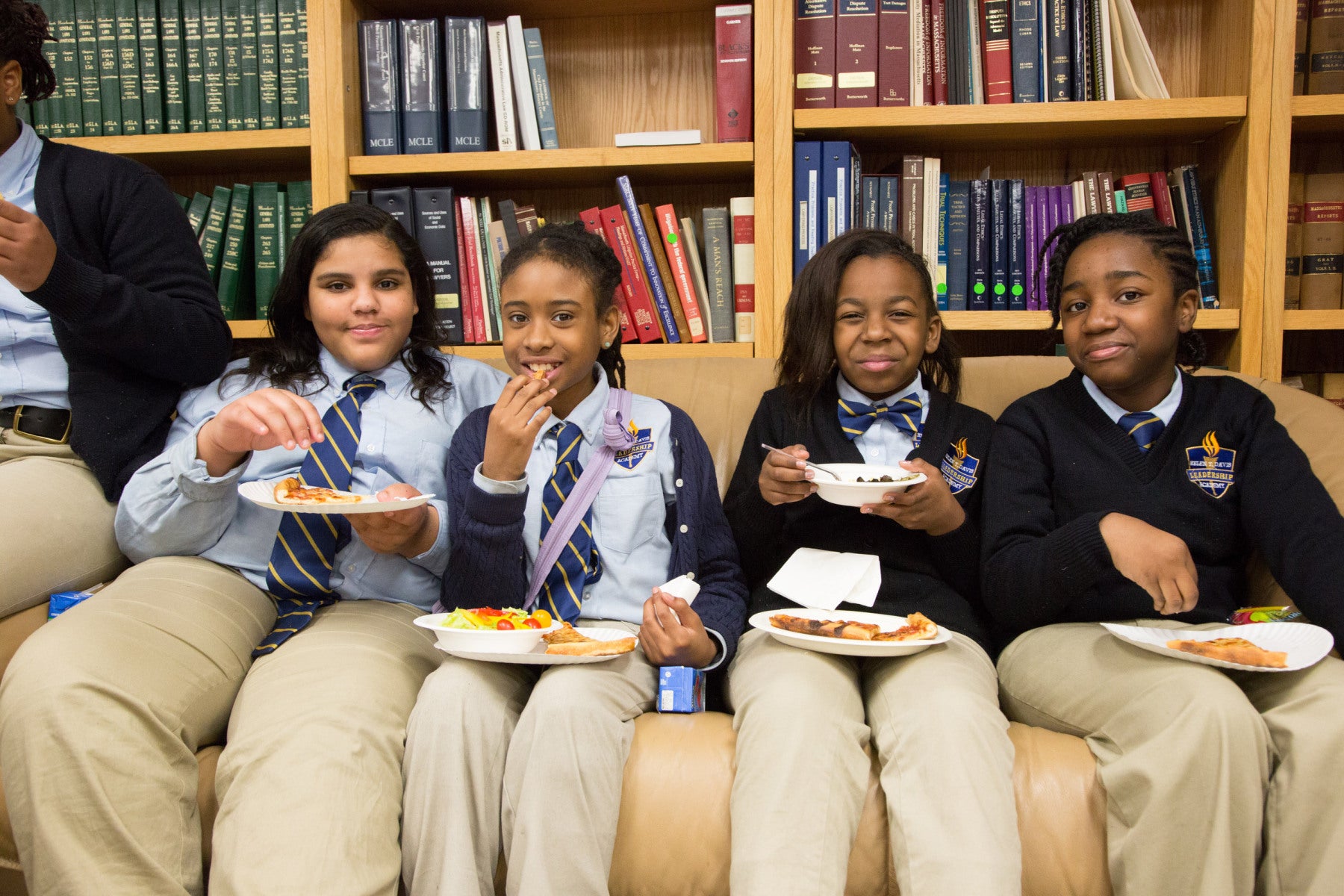
This month, the Harvard Law School Legal Services Center in Jamaica Plain held an art opening: the theme was community and social justice. The artists and guests of honor at the March 5 event were more than 50 sixth-graders from the Helen Y. David Leadership Academy in Dorchester, along with their teachers and the school’s executive director.

Drawings, masks and collages were among the art on display in the LSC library. One student artist, commenting on his piece, a multicolored mask, explained the symbolism behind the colors: “Green is for the community growing after the Michael Brown killing; blue is for sadness that came over us when our culture and race were being killed; gold is for the achievement and success that African-Americans have had.”
Another artist said, “I wrote the words “life” on my drawing, because I believe everybody should have a good life. Not just a life.”

The event was co-ordinated by Brandon German, a community outreach worker at the Legal Services Center, who opened the event with words of inspiration for the students.
Harvard Law School Clinical Professor Daniel Nagin introduced the keynote speaker, Harvard Law School Dean Martha Minow. Describing Minow as “principal of Harvard Law School,” Nagin told students: “She’s here because you matter, your artwork matters, and your dreams and your visions matter.”
Minow commended the students for recognizing the importance of community and fairness in their artwork. She said the Legal Services Center plays an important role in advancing fairness and justice by helping poor people in the community get the legal help they need to stay in their homes, protecting them from domestic violence, and helping them get money that they have been cheated out of.
“Justice needs advocates,” said Minow. “Justice needs people knowing their rights and saying, ‘I’ve been wronged’.”
Minow said lawyers use words to effect change, in much the same way the students had used words in their artwork. She recalled a famous lawyer and storyteller, Thurgood Marshall, a civil rights attorney and the Supreme Court’s first African-American justice.
Minow, who served as a law clerk to Justice Marshall, said: “This man, who was one of the greatest lawyers in American history, had a gift of storytelling,” she said. “I don’t want you to lose that gift that you have so beautifully exhibited. That’s how you persuade and make the difference.”
After her remarks, the dean introduced Harvard Law Student Blake Strode ’15, saying he represents the best of what lawyers can be. During his time at law school, Strode, who was a clinic student at the Legal Services Center last spring, has worked with Project No One Leaves to help people facing foreclosure stay in their homes. After graduation this spring, he will work in St. Louis on issues of racial justice as a Skadden fellow.

Strode talked about his own path and how at a young age he became inspired by the narrative of the black freedom struggle. “Somewhere along the line I decided I wanted to place myself in that tradition of that stream of people who were pushing for justice– not just on an individual level but social justice for all.” He said that led him to set his sights on law school.
He said he, like others, is struggling to make sense of the deaths of Michael Brown, Eric Garner, and countless others, but he has been inspired to see young people taking ownership of their communities and demanding change. “It is in part because of that that I am going back to St. Louis to work for change in the communities that I know and love. I do think change is possible. I know it. I think justice is possible but it will require that we all take part.”
Strode, a former tennis pro, shared with the students some lessons he’d picked up along the way. He told students to never let others dictate what is possible, practical, achievable, and to never confuse success with greatness. “People who sacrificed for us did so not just so you could have success, but so that you could be great.”
Harvard Law School Clinical Professor Daniel Nagin, who heads the Legal Services Center and runs its Veteran’s clinic, thanked the students for sharing their art and improving the work of the Legal Services Center with their creativity. He said: “When you leave you are leaving behind your creation and your ideas and your values, and they will speak to us, when we are here with our students, talking about the law, talking about justice.”